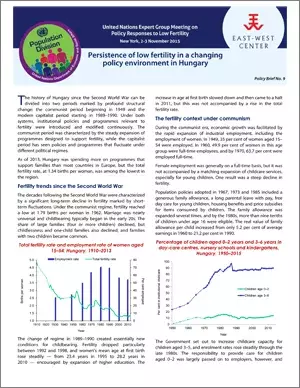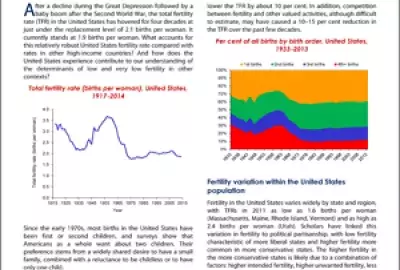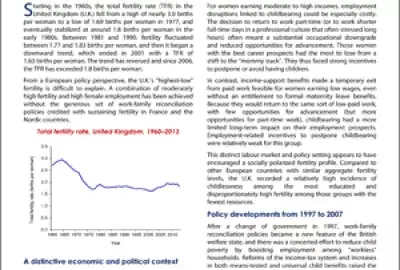Error message

The history of Hungary since the Second World War can be divided into two periods marked by profound structural change: the communist period beginning in 1949 and the modern capitalist period starting in 1989-1990. Under both systems, institutional policies and programmes relevant to fertility were introduced and modified continuously. The communist period was characterized by the steady expansion of programmes designed to support fertility, while the capitalist period has seen policies and programmes that fluctuate under different political regimes. As of 2013, Hungary was spending more on programmes that support families than most countries in Europe, but the total fertility rate, at 1.34 births per woman, was among the lowest in the region.
|
The history of Hungary since the Second World War can be divided into two periods marked by profound structural change: the communist period beginning in 1949 and the modern capitalist period starting in 1989-1990. Under both systems, institutional policies and programmes relevant to fertility were introduced and modified continuously. The communist period was characterized by the steady expansion of programmes designed to support fertility, while the capitalist period has seen policies and programmes that fluctuate under different political regimes. As of 2013, Hungary was spending more on programmes that support families than most countries in Europe, but the total fertility rate, at 1.34 births per woman, was among the lowest in the region.
|
Policy Briefs - United Nations Expert Group Meeting on Policy Responses to Low Fertility







